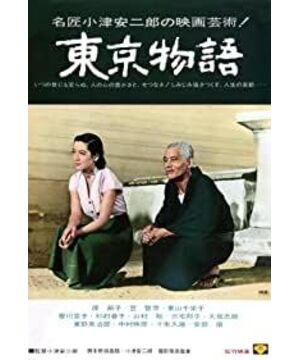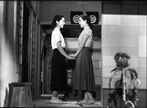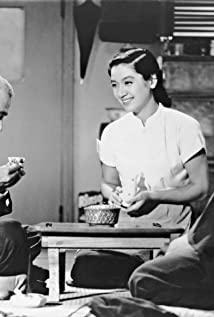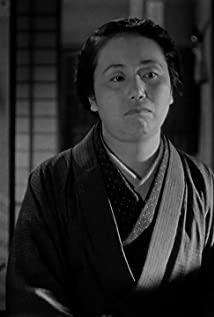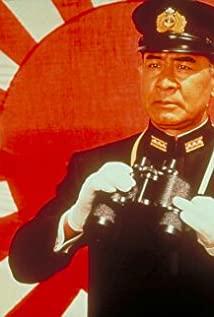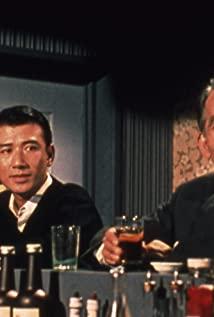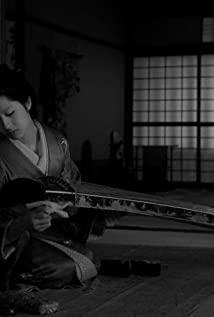The old couple went to Tokyo to visit their children from Onomichi. The neighbors said that your children are really promising.
Zhou Ji drank with his stomach and Zhaotian in Tokyo. Zhaotian said to Zhou Ji, you are the happiest. When you come to Tokyo, you have a good son and a good daughter. My son is not good, and I am afraid of my wife and despise me.
This is an outsider's view of Zhou Ji's child, but the fact is heartbreaking.
Ozu's "Tokyo Story" no longer discusses Noriko's marriage, but focuses on a word of filial piety.
The eldest son, Koichi, is a doctor. He said he was taking his parents out for sightseeing, but he made a temporary visit and did not make the trip. Regarding the eldest son, Zhou Ji has something to say. Before I came to Tokyo, I always thought that my son, probably quite accomplished, was just a neighborhood doctor. It means he is disappointed.
The eldest daughter Fan opened a beauty salon, and she lived a very economical life. Her parents came from afar, and the eldest son-in-law bought delicious white-filled pastries. Fan said it was delicious, but it was too expensive. She should buy pancakes like yesterday, anyway. Parents like it. It means that it is not worth it for parents to eat delicious food. Because Koichi and Fan were busy with their livelihoods and couldn't find time to take their parents out for a tour, they thought of sending their parents to Atami Hot Spring to save money and trouble. Thought it might be a good move, but when my parents went there, they found out that Atami is crowded with people. People playing cards at night are coming and going, singing and laughing. It is not a place for the elderly to relax at all. So her parents returned from Atami early, which made Fan very annoyed, because a lot of people were going to hold a seminar at her house that night. She must not want people to know that her parents were here, maybe it would hurt her face, because When the parents entered the door, the guest asked who it was, and she replied that it was an acquaintance from her hometown.
Zhou Ji and his wife left wisely, and Zhou Ji smiled and said that he was finally homeless. As a result, Zhou Ji later came to the conclusion that his children will change when they grow up. Fan was very kind to others when he was a child, and his daughter has no hope when she gets married (this is reminiscent of Zhou Ji's similar remarks in "Late Spring").
The younger son, Jing San, seems to be better than his elder brothers and sisters. Although he is also annoyed by the fact that his mother suddenly got out of the car because he was unwell, because he had to borrow a quilt and ask a doctor, he knew that he had not fulfilled his filial piety, and said , I can't stand the sound of the wooden fish, it seems that the mother gradually becomes smaller with the sound, I don't want to lose her, and when I die, the bedding can't be laid on the grave.
In fact, my mother had already expected her own death.
When she came to Tokyo, with the hope of taking this pleasure, she said that people still have a long life.
As for Zhou Ji's great emotion in Tokyo, she said that if she was accidentally separated, she might never see each other in her life (indicating her rejection of big cities, believing that her children's changes were all due to social persecution, and it was difficult for them to see each other when they arrived in Tokyo, See you this time but don’t know when to see you again).
I stayed at Noriko's house for one night. In the morning, Noriko asked my mother to come again next time. My mother said, I don't know if there is any chance.
At the station, Mom said to everyone, I saw everyone this time, and if we have anything to do, you don't have to come here. Fan said, don't say that, Mom, it's not parting from life and death (a prophecy). Ma said, I'm serious, we live too far.
In Osaka, my mother said, I saw all my children in ten days, and my grandson has grown up. It means that you should be content and die without regrets.
Zhou Ji said that it is difficult for children to do what their parents want.
We are happy, the old couple said together.
And most of this happiness is related to Noriko. Noriko, as the wife of the second son Changji who died in the war, has not yet remarried. She respectfully treats the two old men as her biological parents. Her biological children have no time to take them around Tokyo. She was driven out of the house, despite the narrowness of the house, she invited the two elders to enter, and stayed at her mother, pinching her shoulders and beating her back. After her mother's funeral, her own children finished talking a lot of empty words, took away her mother's relics, and left without looking back. Now, only Noriko, an outsider, stayed until the end to spend a little more time with Zhou Ji, who was alone and hunched over his back.
Zhou Ji said that his own children are not as filial as you, an outsider.
We are happy. Listening to this sentence again, there is an unspeakable sadness.
View more about Tokyo Story reviews


